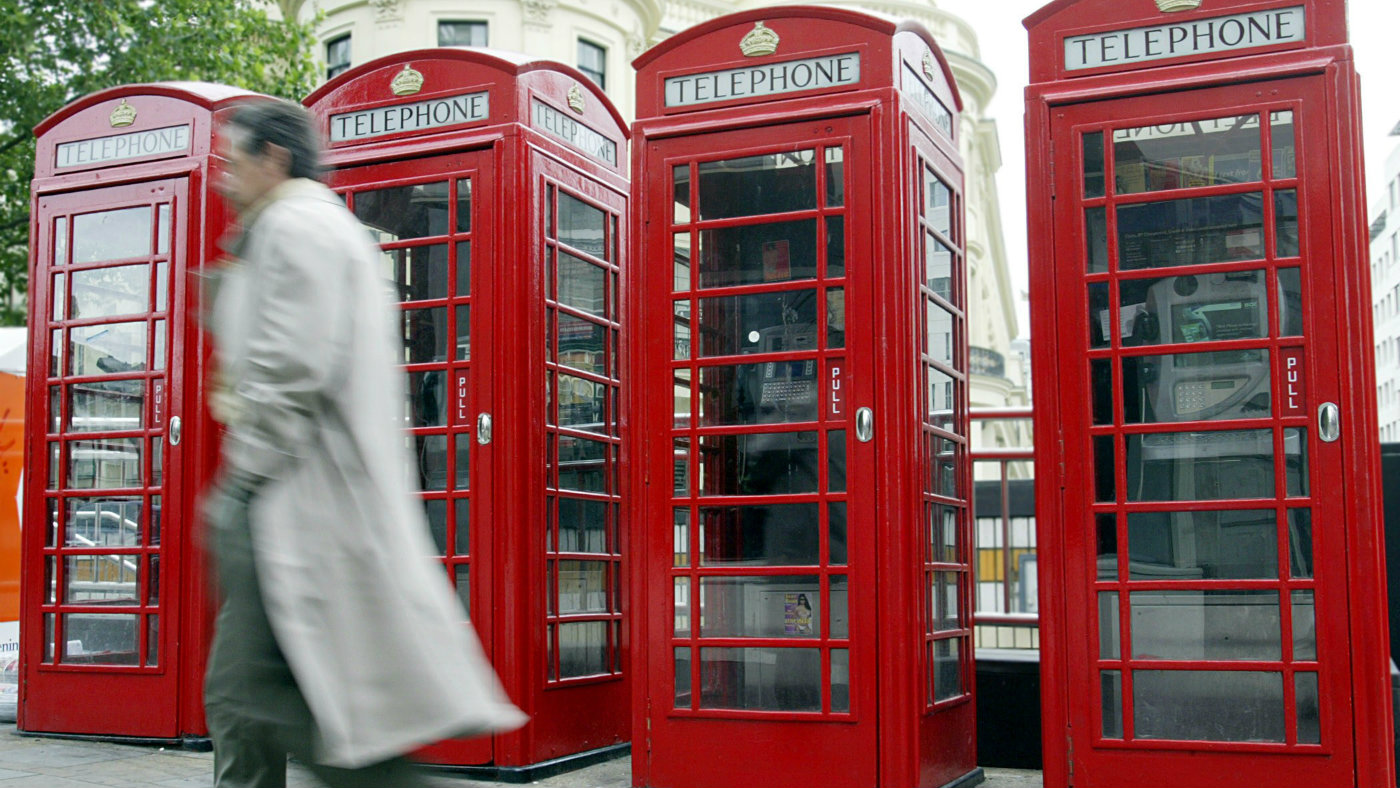Three innovative businesses to save the iconic red phone box
Alongside community projects like libraries and galleries are street salad vendors and micro-offices

A free daily email with the biggest news stories of the day – and the best features from TheWeek.com
You are now subscribed
Your newsletter sign-up was successful
The phone box took its latest inexorable step towards obsolescence last week, when BT announced plans to ditch half of the remaining 40,000 that are still fulfilling the role for which they were intended.
That means less than a quarter of the 92,000 telephone boxes in use at their peak will remain in service. Small wonder, as near-ubiquitous smart phone ownership means useage of the public call boxes has plummeted by 90 per cent.
But this also threatens one of Britain's quintissential architectural features: the 'K6' red telephone box, so beloved of tourists and arguably as iconic as red buses and black cabs on London's roads.
The Week
Escape your echo chamber. Get the facts behind the news, plus analysis from multiple perspectives.

Sign up for The Week's Free Newsletters
From our morning news briefing to a weekly Good News Newsletter, get the best of The Week delivered directly to your inbox.
From our morning news briefing to a weekly Good News Newsletter, get the best of The Week delivered directly to your inbox.
Breathe easy, nostalgia fans. BT has for some time now been running an "adoption" scheme whereby it will "sell" an out-of-service phone box (with the telephone removed, of course) to communities to be put to more productive use - or just saved for posterity.
The Express and Star says this has led to some noble repurposing of the red booths as defibrilator stations, honour-system community libraries and micro-galleries to showcase local artists' work.
Entrepreneurs have sensed an opportunity, too. Established in Brighton in 2014 the Red Kiosk Company is buying up the boxes, refitting them and renting them out for £3,600 a year to quirky street-vendors seeking a more permanent base, says Bloomberg.
Here are three of the best phone-box businesses to look out for:
A free daily email with the biggest news stories of the day – and the best features from TheWeek.com
Food vendors
The original red box businesses were two micro-coffee shops opened by Brighton pair Eddie Ottewell and Steve Beeken, which was the foundation for the Red Kiosk Company they founded. Many others food and drink vendors have sprung up since.
Perhaps among the most successful is the salad bar opened by Ben Spier in Bloomsbury Squre. He told Sky News he could supply 60 portions of salads a day to a customer base mostly comprised of local office workers - and he's since branched out to open his own full-blown shop in St James's Park tube station.
Mini-offices
A more poignant use of the boxes, given their origins, is as (very) small office spaces fit for 21st century flexible workers.
A New York-based company called Pod Works is fitting out red phone boxes as mini-offices complete with wifi, plug sockets, a phone, printer and scanner. There is no charge beyond the £25 a month membership fee - and even complimentary coffee and tea, says Reuters.
Phone repairs
A more ironic use for phone boxes is as repair shops for the very devices that have put them out of regular use: smart phones. Lovefone is opening a number of "smallest repair shops in the world" in red call boxes. The first launched the first on London's Greenwich High Road last August.
The company said last year that it wanted to has 35 kiosks operating by the end of 2017 - and that it would offer a free charging point "in keeping with the idea that these boxes did and should retain an aspect of public service".
-
 Corruption: The spy sheikh and the president
Corruption: The spy sheikh and the presidentFeature Trump is at the center of another scandal
-
 Putin’s shadow war
Putin’s shadow warFeature The Kremlin is waging a campaign of sabotage and subversion against Ukraine’s allies in the West
-
 Media: Why did Bezos gut ‘The Washington Post’?
Media: Why did Bezos gut ‘The Washington Post’?Feature Possibilities include to curry favor with Trump or to try to end financial losses